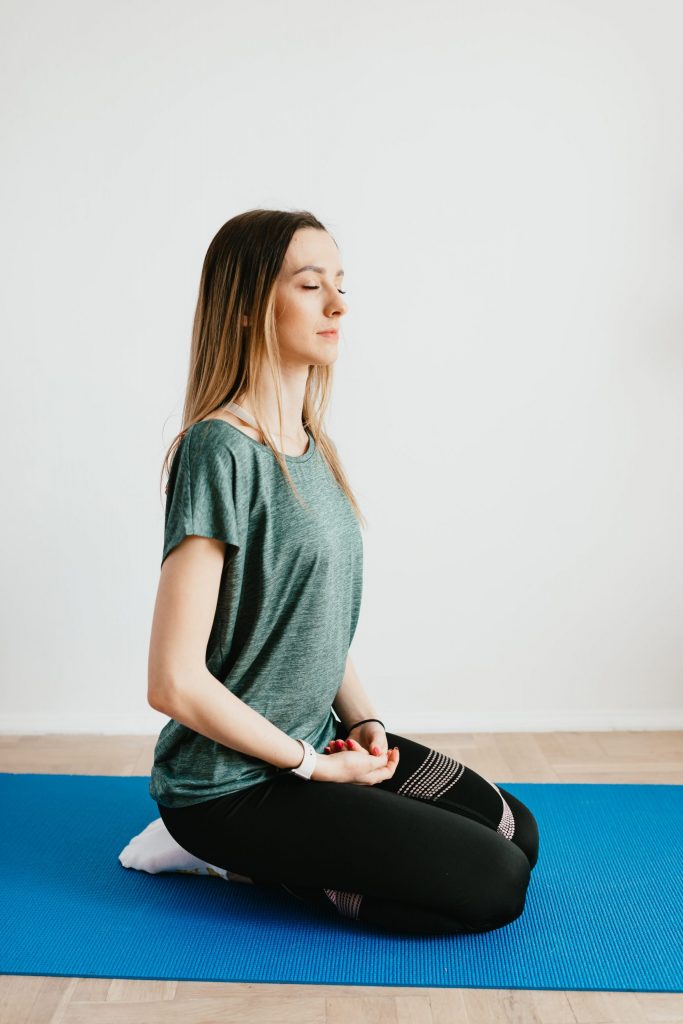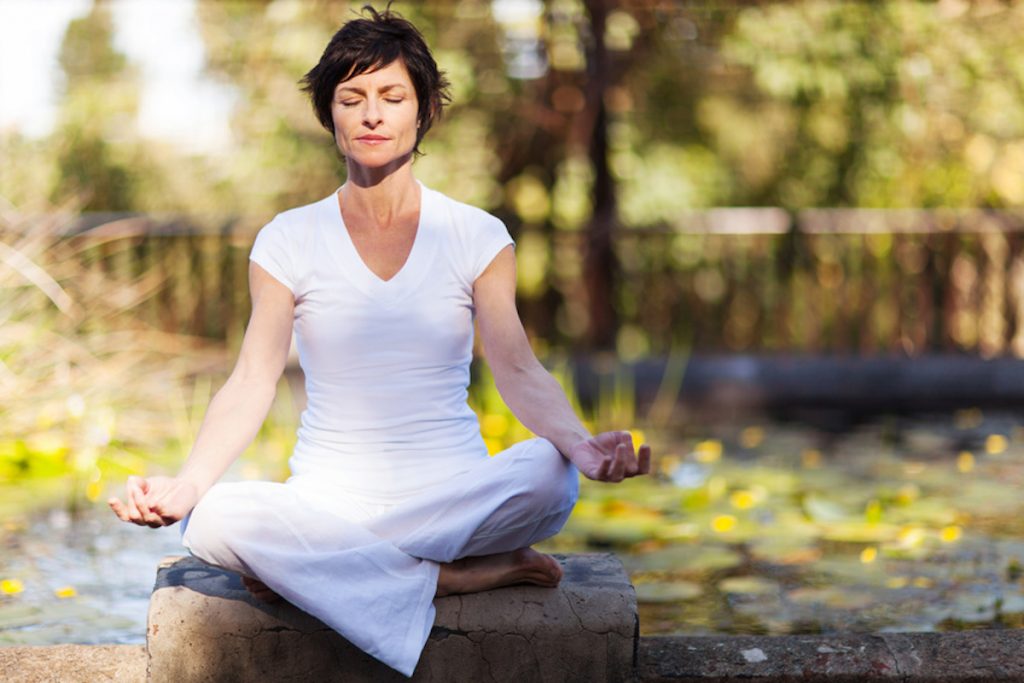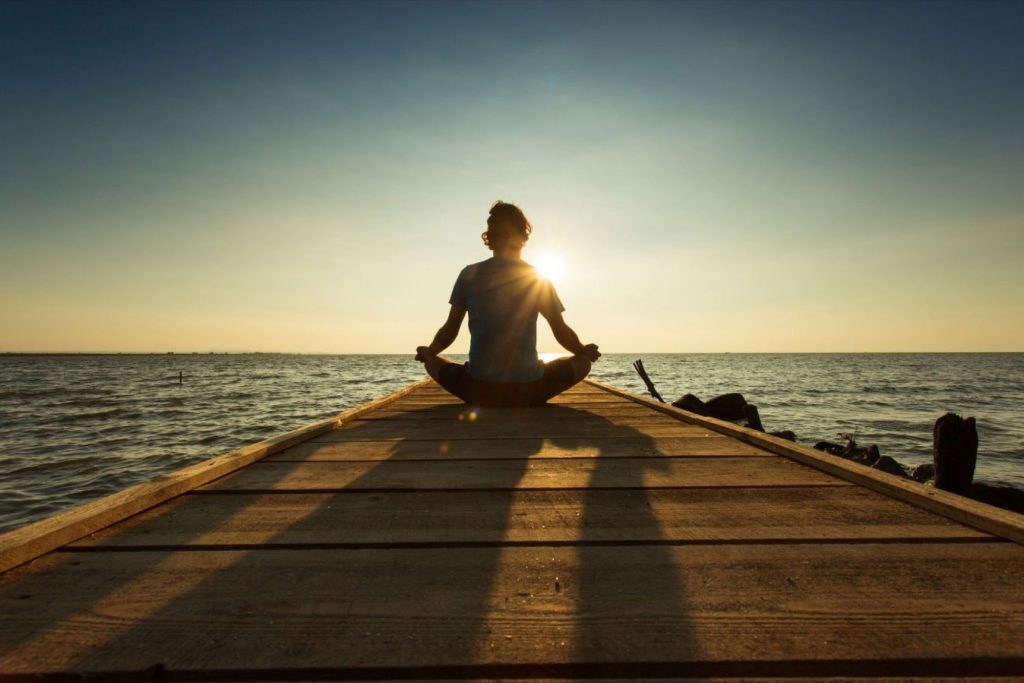
In many ways, it seems churlish to argue that life isn’t now is more comfortable, convenient and prosperous than it has ever has been. While our ancestors spent their days grubbing up roots for a mud-and-onion stew, getting tormented by Vikings or diligently developing scurvy, we get to sit around eating pizzas and watching Poldark. It’s undeniably fantastic! Yet with anxiety and stress swiftly becoming pressing health issues, it seems that despite our advantages there’s something amiss.
When we acknowledge that modern life is stressful, and ask if meditation is the answer, we need to consider exactly why society (as it’s organised now) is making so many of us feel so pent up. It seems clear that there’s something about we humans and the way we’ve decided to live that’s driving us to distraction. You can look at pretty much anything else in the animal kingdom and they seem more chilled, even the animals that have legitimate concerns about being savaged by lions – so where are we going wrong?
Life, stress and feeling the pressure
If you often struggle through work, think you can’t keep up with everything you have to do, and want the world to just stand still for a moment so you can collapse in a heap, you are probably one of the many people who is finding it hard to cope with the pressure of modern life. A thousand tiny worries create a haze of exhaustion and stress, something that has unfortunately been accepted as the new normal.
There is a variety of factors that contribute to this feeling. The drip-drip effect of small stresses all add up; from the moment the alarm shocks us out of our natural sleep, to reading worrying news stories on our smartphones before we drop off (often a little later than we planned to). This has only got more intense as technology has advanced, and we can often find ourselves receiving office emails at 10 pm, never getting the chance to truly switch off.
Modern technology means we are always socially “on”, checking social media profiles, maintaining an image of ourselves (known as our “personal brand”) and interacting with friends. The result is that we are always engaged with the world, performing socially even in moments where we are alone and seemingly winding down.
The other aspect of this information overload is that we have become surrounded by advertising, perpetuating the idea that there’s always something that we need. Trying to measure up to an unattainable, marketing-born ideal can cause lots of anxiety and strain. Worrying about wrinkles, agonising over outfits and stressing out because we can’t afford a holiday this year may seem trivial, but it can place real barriers in the way of contentment and happiness.
Many of these issues are the result of the modern world evolving faster than our physiology. Our response to stress evolved in order to help us run or fight for our lives in times of danger, and our body reacts accordingly. It does this by releasing stress hormones such as adrenaline and cortisol, raising our heart rate and redirecting energy to our muscles in order to cope with the immediate peril.
Because these threats were few and far between, our bodies were designed to have long periods of rest between stressful moments. Then the hormones and other bodily responses could dissipate and return to normal, but now we are eliciting this response more regularly than is good for us.
An overload of stress hormones makes us feel pretty terrible – negatively affecting our immune system, mental wellbeing and making it hard to get a good night’s sleep. Our 24 hour, on-the-go world and all its attendant pressures means that it’s more important than ever to take care of ourselves.
How Meditation Helps Us
Self-care in the form of meditation offers a profound rest and gives us a much-needed respite from the stresses of the modern world. Simply ensuring we know when to say “no” and take some time for ourselves is vital in a world where we are encouraged to be constantly busy, and can even feel guilty or lazy when we need to relax. Becoming conscious of our own stress levels and taking time out when they have become overwhelming is hugely important, and will help us find modern life much less stressful.
Meditation encourages a bodily reaction which is pretty much the exact opposite of the stress response. Instead of \”fight or flight\”, we foster \”rest and repair\”, finding levels of relaxation which can be extremely elusive in our society. With this, we can cultivate a calm and clarity that will help us work smarter, rest more often and make better judgements for ourselves.
When our thinking is clouded by stress, we can lack the ability to perceive situations as they truly are and find that we are so lacking in energy that with have neither the motivation or adaptability to change our circumstance. By becoming that little bit more relaxed and happier with meditation, it becomes much easier to consider change – for instance, by asking ourselves whether we\’re really enjoying our current job role and if perhaps there isn\’t some capacity to change things for the better with a couple of bold moves.
Perhaps the most exciting thing about meditation, however, is the potential to change the world we live in. There is nothing inevitable about structural problems we face – from rampant consumerism to climate change – and through meditation, we can begin to make more compassionate, long-sighted and thoughtful decisions for ourselves and the world around us. The small, individual transformations which are facilitated through meditation, such as a greater capacity for kindness and understanding, could have a huge impact on the way humanity operates as a whole – which we think is a pretty amazing prospect.

The Benefits of Beeja Meditation
- Reduce stress and anxiety
- Greater clarity and calm
- Increase focus
- Enhance relationships
- Sleep better
- Feel energised



